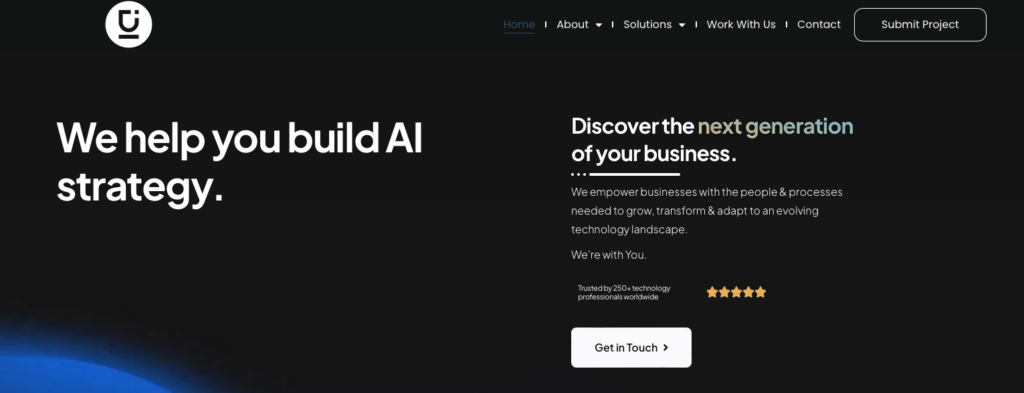The Corporate Training and L&D Sector: A Comprehensive Guide
How the Corporate & L&D Sector has Evolved Since the AI Boom in 2024
Introduction

The corporate training and Learning & Development (L&D) sector is crucial for organizational growth, employee development, and maintaining a competitive edge. I will explore the various subsectors within the industry, the role of AI, and the importance of AI consultants in shaping effective training and LMS solutions.
Overview of the Corporate Training & L&D Market in 2024

Market Size and Growth
According to HolonIQ, the UK dominates the European market & the USA still dominates the global corporate training market, which is expanding rapidly:
- Global Corporate Training Market Size (2021): USD 357.6 billion
- Projected Size (2027): USD 487.3 billion
- CAGR: 5.7%
- Global Corporate LMS Market Size (2023): USD 9.98 billion
- Projected Size (2033): USD 63.12 billion
- CAGR: 20.24%
Regional Insights
- North America: Dominates with the highest market share due to its advanced infrastructure and high adoption rates of training technologies.
- Asia-Pacific: Expected to witness the fastest growth, driven by industrialization and increasing adoption of LMS technologies.
Sub-Sectors within Corporate Training and L&D

Employee Onboarding
Effective onboarding programs help new hires acclimate quickly to their roles and the company culture.
- What AI can do for Employee Onboarding: Personalises onboarding processes with tailored content based on the new employee’s background and role.
- Tailored Learning Modules: AI can create customized learning modules that focus on the specific needs and responsibilities of the new hire.
- Progress Tracking: AI tracks the progress of new hires, ensuring they complete necessary training and understand key company policies.
Compliance Training
Ensures employees are aware of laws, regulations, and company policies.
- What AI can do for Compliance Training: Automates and personalizes compliance training, ensuring relevance and up-to-date information.
- Automated Updates: AI ensures training content is always current with the latest regulatory changes.
- Personalized Assessments: AI provides personalized quizzes and assessments to ensure comprehension and compliance.
Skill Development
Ongoing skill development is essential for employee growth and organizational competitiveness.
- What AI can do for Employee Skills Development: Identifies skill gaps and recommends personalized learning paths to bridge these gaps.
- Skill Gap Analysis: AI analyzes employee performance to identify areas needing improvement.
- Customized Training Plans: AI recommends training modules tailored to the individual’s skill development needs.
Leadership Development
Prepares employees for managerial and executive roles.
- What AI can do for Leadership Development & Training: Provides data-driven insights into leadership styles and effectiveness for targeted development efforts.
- Behavioral Analysis: AI assesses leadership behaviors and provides feedback for improvement.
- Customized Leadership Programs: AI designs personalized development programs based on the leadership potential and style of each employee.
Product Training
Ensures employees understand the company’s products and services.
- What AI can do for Product Training: Creates interactive and engaging training modules that improve retention and understanding.
- Interactive Simulations: AI develops simulations that allow employees to practice using products in a risk-free environment.
- Real-Time Feedback: AI provides instant feedback on training exercises to reinforce learning.
The Role of AI in Corporate Training

1. Personalization
AI algorithms analyze employee data to create personalized learning experiences.
- Benefits: Tailors training to individual needs, learning styles, and career goals.
- Adaptive Learning Paths: AI adjusts the learning path based on real-time performance data.
- Content Recommendations: AI suggests additional resources and materials that align with the learner’s progress.
2. Predictive Analytics
AI predicts future training needs based on current performance and skill gaps.
- Benefits: Allows proactive training interventions and prepares employees for future challenges.
- Performance Forecasting: AI predicts future performance trends and identifies potential skill shortages.
- Proactive Training Programs: AI recommends training programs before skill gaps impact performance.
3. Automation
AI automates administrative tasks such as scheduling, tracking progress, and generating reports.
- Benefits: Reduces the administrative burden on HR and training departments.
- Automated Scheduling: AI manages the scheduling of training sessions and notifications.
- Progress Tracking and Reporting: AI provides detailed progress reports and analytics dashboards.
4. Engagement
AI enhances engagement through interactive content, simulations, and gamification.
- Benefits: Makes learning more enjoyable and effective, leading to higher retention rates.
- Gamified Learning: AI incorporates game elements like points, badges, and leaderboards to motivate learners.
- Interactive Content: AI develops interactive scenarios and role-playing exercises.
How to Develop an AI-Enhanced LMS for Corporate Training

AI-Driven Personalization
AI allows LMS providers to offer highly personalized learning experiences.
- How: Analyzes user behavior and learning patterns to recommend customized content and training paths.
- User Behavior Analysis: AI tracks user interactions to personalize the learning journey.
- Adaptive Content Delivery: AI delivers content based on learner preferences and performance.
Advanced Analytics
AI enhances the analytical capabilities of LMSs.
- How: Provides deeper insights into training effectiveness, learner engagement, and skill progression.
- Detailed Metrics: AI generates comprehensive analytics on learner performance and engagement.
- Insightful Reports: AI creates actionable reports to inform training strategies.
Intelligent Automation
AI-driven automation streamlines administrative tasks within the LMS.
- How: Automates content curation, scheduling, and progress tracking, reducing administrative burden.
- Content Curation: AI selects and organizes relevant training materials.
- Automated Notifications: AI sends reminders and updates to learners and administrators.
Enhanced Engagement
AI creates more engaging and interactive learning experiences.
- How: Incorporates virtual tutors, chatbots, and gamification elements to improve engagement.
- Virtual Tutors: AI-powered tutors provide personalized support and feedback.
- Chatbots: AI chatbots answer learner questions and guide them through the training process.
Predictive Maintenance
AI predicts and identifies potential issues within the LMS.
- How: Ensures proactive maintenance and minimizes downtime for a seamless learning experience.
- Predictive Diagnostics: AI monitors system performance and predicts maintenance needs.
- Proactive Alerts: AI sends alerts for potential system issues before they impact users.
Why AI Consultants Are Essential

1. Strategic Planning
AI consultants help develop comprehensive AI strategies aligned with business goals.
- How: Ensures AI initiatives are integrated seamlessly into the broader corporate strategy.
- AI Roadmapping: Consultants create detailed roadmaps for AI implementation.
- Strategic Alignment: Consultants ensure AI projects support business objectives.
2. Technology Selection
Choosing the right AI tools and platforms is crucial for success.
- How: AI consultants bring expertise in selecting technologies that meet the specific needs of the organization.
- Technology Assessment: Consultants evaluate and recommend the best AI tools.
- Vendor Selection: Consultants help select and manage AI vendors.
3. Implementation Support
AI consultants provide support during the implementation phase.
- How: Ensures AI solutions are deployed effectively and integrated with existing systems.
- Project Management: Consultants oversee the implementation process from start to finish.
- System Integration: Consultants ensure seamless integration with existing systems.
4. Continuous Improvement
AI consultants offer ongoing support and training to maximize the benefits of AI.
- How: Help organizations stay up-to-date with the latest advancements and continuously improve AI initiatives.
- Training Programs: Consultants develop and deliver training for staff on AI tools and best practices.
- Performance Monitoring: Consultants monitor AI system performance and recommend improvements.
Conclusion

The corporate training and L&D sector is evolving rapidly, driven by advancements in AI and the increasing demand for personalized and efficient training solutions. AI plays a crucial role in enhancing the effectiveness of training programs, making them more personalized, engaging, and impactful.
Organizations that leverage AI in their training and L&D strategies can gain a significant competitive advantage. However, implementing AI effectively requires strategic planning, the right technology, and ongoing support. This is where AI consultants, such as those from Understated AI, play a crucial role.
Investing in AI-driven training solutions and working with specialized AI consultants can transform the way organizations approach employee development, leading to improved performance, higher engagement, and sustained growth. As the market continues to evolve, staying ahead of trends and adopting innovative solutions will be key to maintaining a competitive edge.

